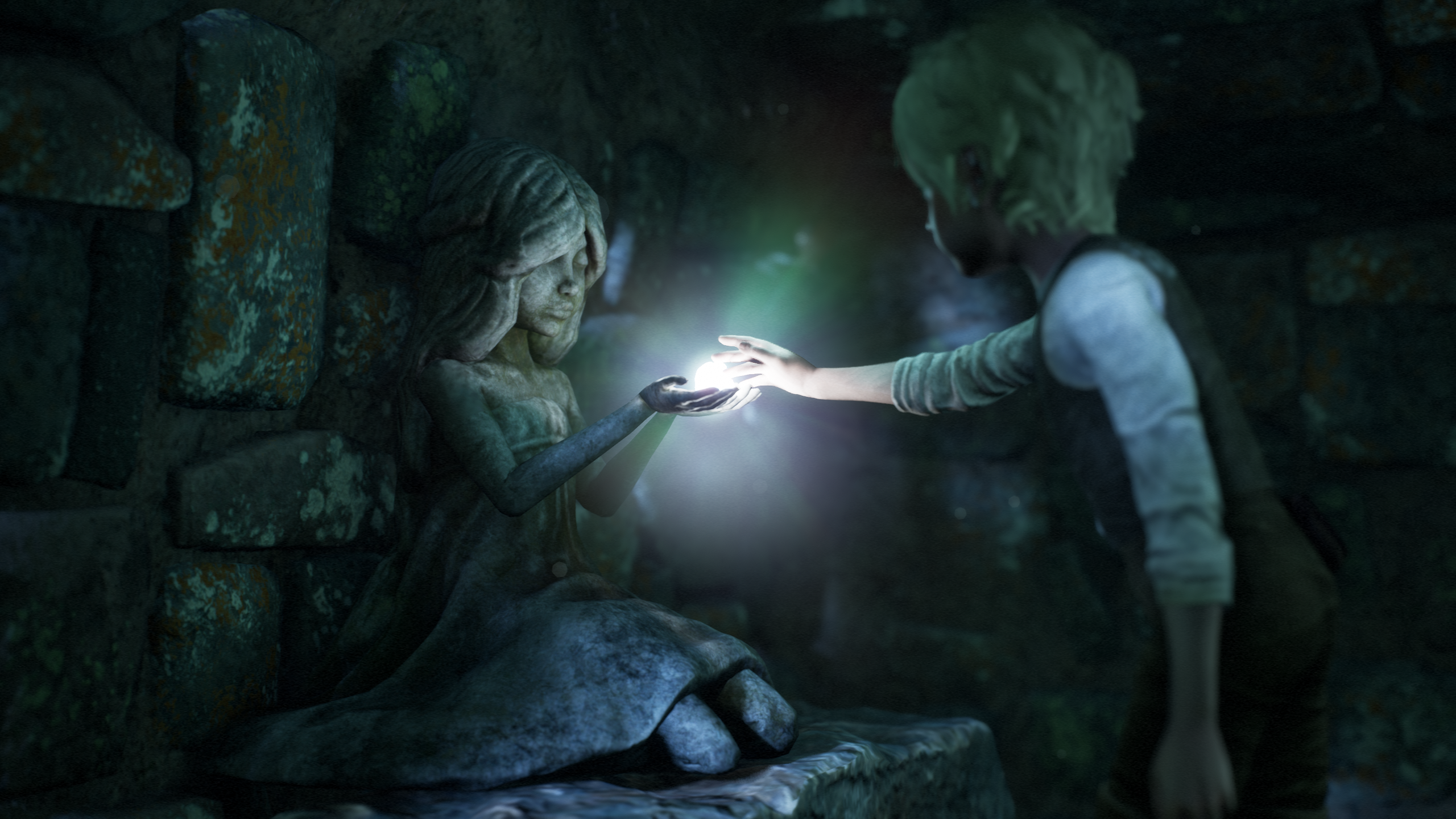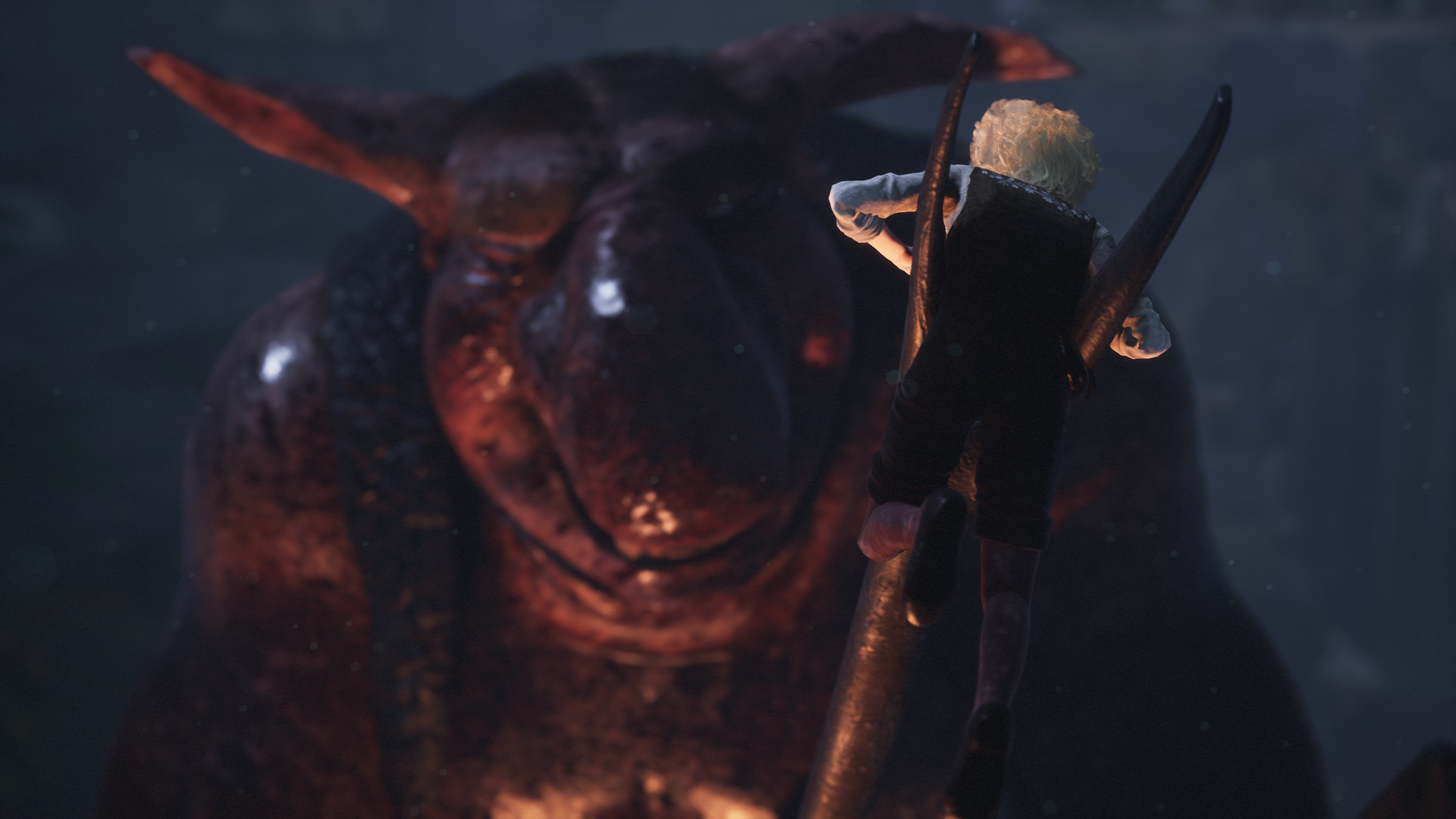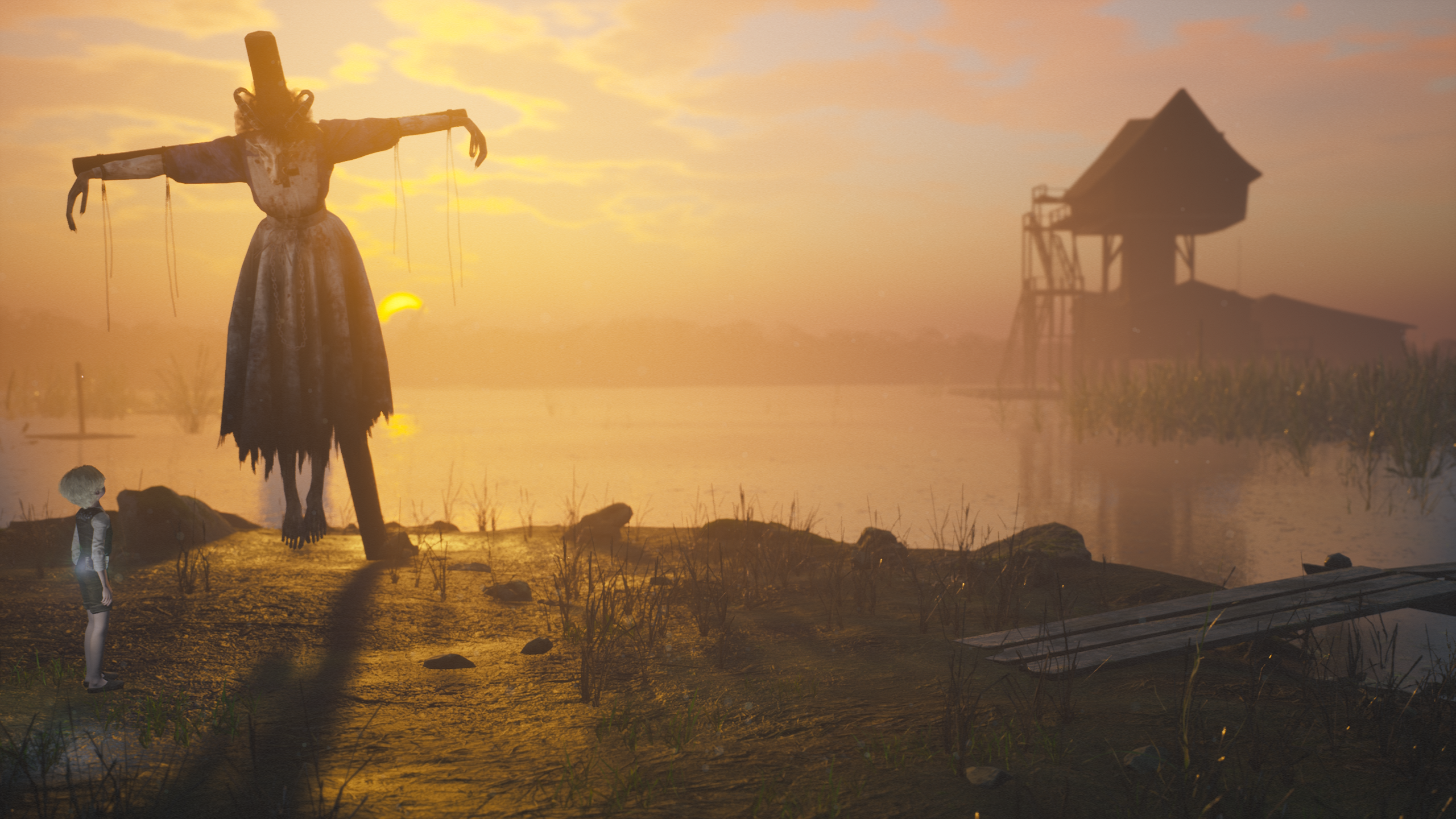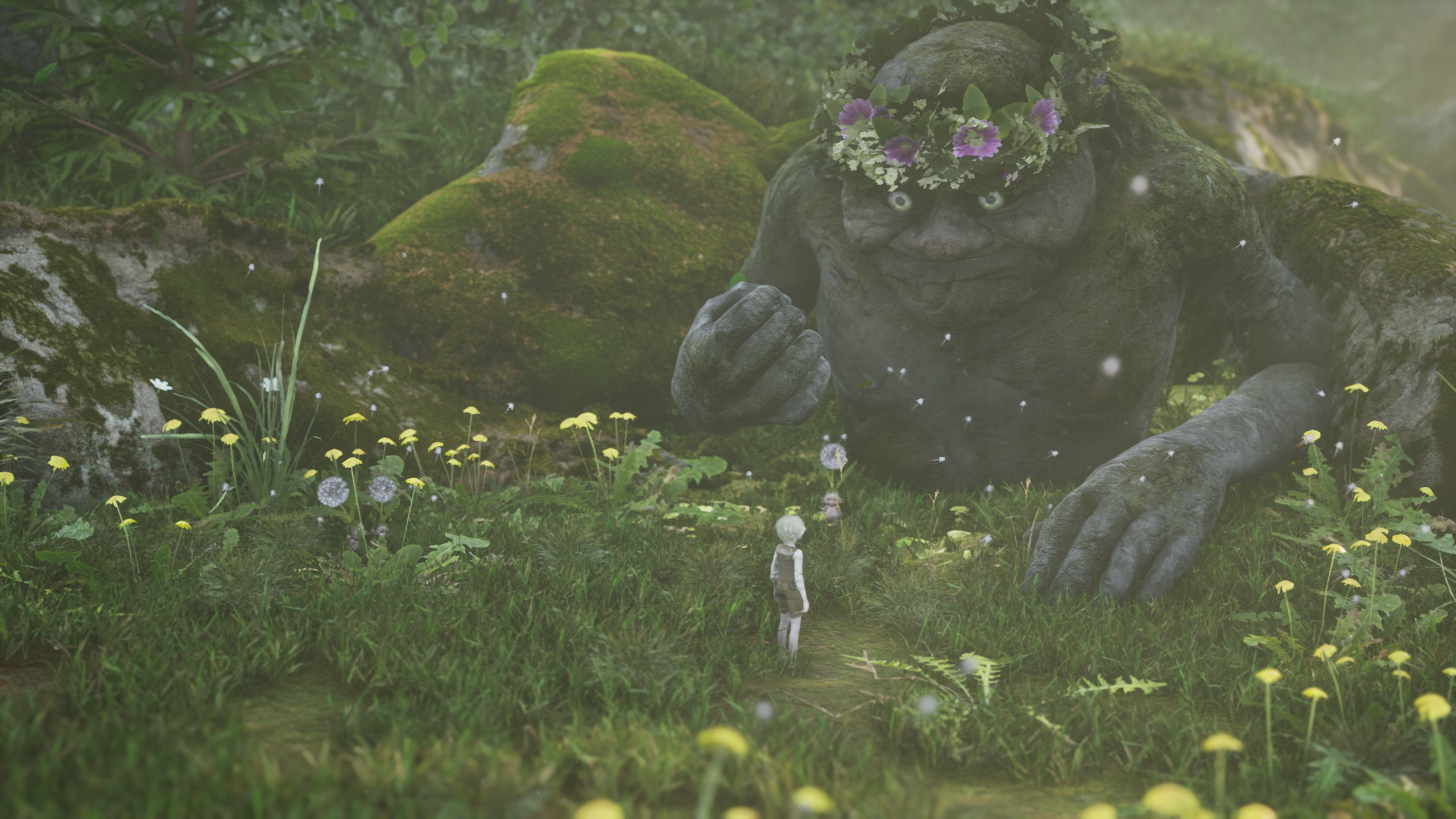Our Verdict
A triumph of sinister mood let down by archaic puzzle design.
PC Gamer's got your back
What is it? A dark action-adventure infused with Nordic myths and legends.
Release date April 27, 2023
Developer Dimfrost Studio
Publisher Merge Games
Reviewed on Radeon 5700 XT, i5-9600K, 16GB RAM
Link Official site
Fairy tales, in their original forms, are not the reassuring bedtime stories we remember from our childhood. Jack and the Beanstalk caps off its home invasion with a murder. Beauty and the Beast revolves around extortion and an imprisoned child bride. Dimfrost Studios understands those fables' dark subtext and, drawing as much from Nordic folklore as from the niche subgenre of macabre platformers, has crafted in Bramble: The Mountain King a world that's enchanting and unsettling in equal measure—even if the accompanying challenge fails to match its inspired mood.
Young Olle wakes up in the middle of the night to discover his sister gone and their cabin, nestled near the edges of the forest, eerily quiet. Determined to find Lillemore, the worried child musters his courage and, against his mother's advice, ventures outside into the domain of trolls and fairies. Backstory details are shrewdly left hazy: we know little of the siblings' parents, their situation, or the mysterious stretch of countryside they inhabit—an ambiguity that only adds to the slowly escalating sense of menace. Only the narrator's gentle voice interceding in crucial moments with vital clues and a handful of beautifully illustrated tomes found scattered throughout illuminate the origins of the game's tragic heroes and villains.

Despite the sumptuous 3D scenery inviting you to wander off, Bramble remains a strictly linear affair, taking its cues from beloved children-in-peril adventures like Limbo and Little Nightmares. The sleepy gnome villages, desolate swamps, and moonlit copses may look expansive but offer few diversions. There's nothing to do other than press on, the camera jostling you forward, discouraging unnecessary exploration. Even its few collectibles, in the form of wooden figurines of the saga's grotesque cast, are tucked within the predetermined path, rarely necessitating a detour.
In fact, for long stretches, especially during the first few levels, I felt my input amounted to little more than making sure the stick was pointed in whatever direction I needed to go. Proceedings onscreen might be showing my plucky hero precariously balancing on a branch suspended above a frothing river, tumbling down a mudslide, or hanging on for dear life from the vines covering the side of a steep cliff, but the danger and exhilaration of these situations was never conveyed through the game's movement controls.
After I had progressed deeper into the forest, I needed to be more hands-on, typically solving simple environmental puzzles such as moving a cart about so I could climb onto an out-of-reach ledge, or corralling a herd of cabbage-like creatures into their pen to appease a surly gnome. While usefully breaking the monotony of uninterrupted traversal, these serve mainly to moderate the game's pace—obstacles to prevent me from breezing through to the end, rather than genuine brain-teasers to pit my wits against. Limbo was released more than a decade ago and some of its early-level puzzles felt elementary then—Bramble's very rarely rise above them.
Creature feature

Combat fares significantly better, so it's unfortunate that it's introduced relatively late and reserved exclusively for the occasional boss fight against the Mountain King's nightmarish lieutenants. After Olle discovers a sphere of pure light, he employs the magical artefact not just to illuminate the way or clear the path from thorny bramble that slithers away from its radiance, but also as a projectile to strike at enemies' weak points, in a manner reminiscent of Amicia's sling from A Plague Tale.
It's not the rote mechanics so much as the grim inventiveness of their staging that makes these rare encounters so captivating. On one occasion, I faced a succubus hovering high above the trees and shielding herself with the corpses of her former lovers. On another, a demonic violinist conjured up deadly melodies in the middle of a placid lake, as I was crouching from boulder to boulder to evade his sonic blast. And the most memorable of these skirmishes, a fever-dream clash with a hooded figure that induces surreal hallucinations, is among the most gloriously unhinged videogame sequences I've experienced in recent memory.
As Olle inches closer to his final destination (the brisk journey should take no more than five or six hours), the story ramps up the bleakness, ushering themes of infanticide, mob violence, ritual sacrifice. To the developers' credit, these subplots are not exploited for their shock value. Instead, they're handled with elegance and a measure of humanity, so that they organically mesh with the fabric of that heathen realm.

One highly emotional confrontation, in particular, demonstrates the game's capacity to implicate you in the protagonist's desperate state of mind: after dispatching one of the main villains, an insistent QTE requires you to finish her off, the boundaries between necessary violence and excessive bloodlust dangerously blurring. Fairy tales, after all, always recount the passage from childhood to adulthood and it's apt that young Olle's innocence gradually, almost imperceptibly, turns into blind rage at the world's injustice—a transformation driven entirely by the player's hand.
If Dimfrost had consistently shown the same degree of attentiveness to Bramble: The Mountain King's moment-to-moment interactions, we could be talking of an instant classic, but the studio seemed more intent on delivering a powerful narrative than furnishing it with an engaging game throughout. As it stands, it's only the world they have crafted that lingers in the mind after the final credits have rolled: a twilight dimension whose darkness is tempered with a sense of wonder.
A triumph of sinister mood let down by archaic puzzle design.


